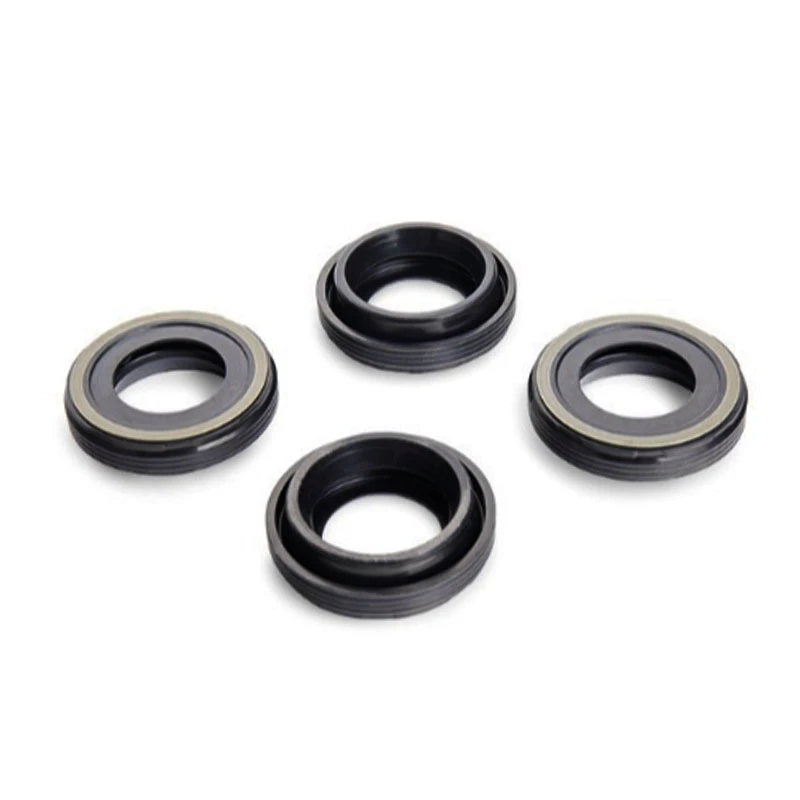oil pan gasket
Understanding the Importance of the Oil Pan Gasket
The oil pan gasket plays a crucial role in the overall function and longevity of an engine. As one of the key components in the oil management system, it ensures that oil remains contained within the oil pan and prevents leaks that can lead to a multitude of problems. This article explores the importance of the oil pan gasket, common issues associated with it, and how to maintain it properly.
What is an Oil Pan Gasket?
The oil pan gasket is a rubber or silicone seal that sits between the oil pan and the engine block. Its primary purpose is to create a tight seal that prevents engine oil from leaking out. The oil pan itself is a large reservoir at the bottom of the engine that stores oil when the engine is not running, and as the engine operates, the oil circulates through various engine components for lubrication and cooling.
Importance of the Oil Pan Gasket
1. Preventing Oil Leaks The most critical function of the oil pan gasket is to prevent leaks. An effective gasket ensures a proper seal, reducing the risk of oil escaping from the pan. Oil leaks can lead to oil starvation, which can severely damage your engine over time. Not only does a leak compromise the integrity of the engine, but it can also lead to costly repairs.
2. Heat Management The oil in the pan plays a vital role in cooling the engine. A secure oil pan gasket helps maintain the correct oil level, ensuring adequate lubrication and temperature control. If the gasket fails and allows oil to leak, the engine may overheat due to inadequate lubrication, leading to catastrophic failure.
3. Contaminant Protection The oil pan gasket also helps keep contaminants out of the oil. Maintaining a proper seal prevents dirt, debris, and moisture from entering the oil pan, which could otherwise degrade the quality of the engine oil and lead to the formation of sludge.
Common Issues with Oil Pan Gaskets
Like any other component of a vehicle, oil pan gaskets can wear out over time. Common signs of a failing oil pan gasket include
oil pan gasket

- Oil Spots One of the most unmistakable signs of a leak is the presence of oil spots under your vehicle. If you notice brown or dark red spots where your vehicle is parked, it's a sign that your oil pan gasket may be compromised. - Low Oil Levels If you find that you frequently need to top off your oil, it may be indicative of a leak. Low oil levels can lead to severe engine damage, so this should be addressed immediately.
- Engine Overheating If the oil is leaking due to a damaged gasket, the engine may overheat as the lubrication is compromised. Keep an eye out for warning lights on your dashboard indicating overheating.
Maintenance and Replacement
Regular maintenance of your vehicle can help extend the life of the oil pan gasket. Here are some tips
1. Regular Oil Changes Changing the oil at regular intervals ensures that the oil remains clean and free from contaminants, which can help prevent damage to the gasket.
2. Inspect for Leaks During routine maintenance checks, inspect the area around the oil pan for signs of leaks. If you notice any, it’s essential to address them before they worsen.
3. Replace Gaskets When Necessary If you are experiencing symptoms of a failing oil pan gasket, it is advisable to have it inspected and potentially replaced. Delaying this can result in more extensive damage and more expensive repairs.
4. Use Quality Parts When replacing an oil pan gasket, it's vital to use high-quality parts that are designed for your specific vehicle model. Cheap or incompatible gaskets may fail prematurely.
Conclusion
The oil pan gasket may seem like a small component in the grand scheme of an engine's mechanics, but its importance cannot be overstated. By ensuring a proper seal, it protects the engine from leaks, helps regulate temperature, and keeps contaminants at bay. Regular maintenance is key to avoiding major issues related to the oil pan gasket. If you notice any signs of a failing gasket, don’t hesitate to seek professional assistance to keep your engine running smoothly. Taking these precautions can save you from significant repair costs and ensure the longevity of your vehicle.
-
Simplifying Oil Changes: A Comprehensive Guide to Oil Drain Plugs and Their Variants
News Aug.04,2025
-
Mastering Oil Drain Maintenance: Solutions for Stripped, Worn, and Upgraded Oil Plugs
News Aug.04,2025
-
Fixing Oil Pan Plug Issues: Leaks, Stripped Nuts, and the Right Replacement Solutions
News Aug.04,2025
-
Everything You Need to Know About Oil Drain Plugs: Sizes, Fixes, and Upgrades
News Aug.04,2025
-
Choosing the Right Oil Drain Plug: A Guide to Sizes, Materials, and Drain Innovations
News Aug.04,2025
-
A Complete Guide to Automotive Drain Plugs: Types, Problems, and Innovative Solutions
News Aug.04,2025
-
The Ultimate Guide to Car Repair Kits: Tools and Essentials Every Driver Should Own
News Aug.01,2025
Products categories















